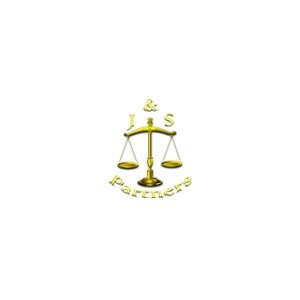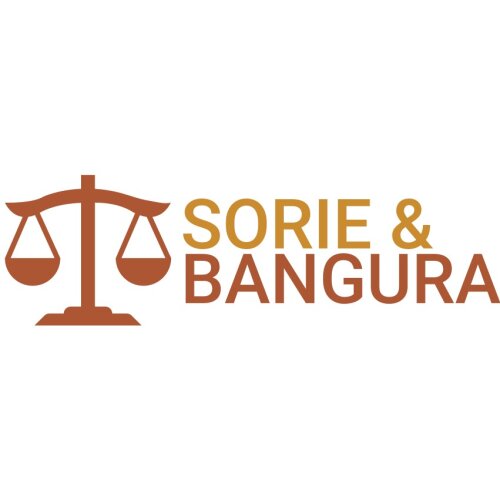Best Child Visitation Lawyers in Sierra Leone
Share your needs with us, get contacted by law firms.
Free. Takes 2 min.
Free Guide to Hiring a Family Lawyer
Or refine your search by selecting a city:
List of the best lawyers in Sierra Leone
About Child Visitation Law in Sierra Leone:
Child Visitation in Sierra Leone refers to the legal right of a non-custodial parent to spend time with their child. This is usually part of a court order or custody agreement. It is important for both parents to abide by these arrangements for the well-being of the child.
Why You May Need a Lawyer:
You may need a lawyer for child visitation issues in Sierra Leone if you are facing challenges in establishing or enforcing a visitation schedule, if the other parent is not complying with the agreed-upon visitation terms, or if there are disputes regarding the best interests of the child.
Local Laws Overview:
In Sierra Leone, child visitation laws prioritize the best interests of the child. The courts consider factors such as the child's age, relationship with both parents, and the ability of each parent to provide a safe and stable environment. Visitation rights are usually outlined in a court order or custody agreement.
Frequently Asked Questions:
1. Can visitation rights be legally enforced in Sierra Leone?
Yes, visitation rights can be legally enforced through a court order or custody agreement.
2. What factors do courts consider when determining visitation rights?
Courts consider the best interests of the child, the child's age, the relationship with both parents, and the ability of each parent to provide a safe environment.
3. Can grandparents or other relatives be granted visitation rights?
In certain cases, grandparents or other relatives may be granted visitation rights if it is deemed to be in the best interests of the child.
4. Can visitation rights be modified after they have been established?
Yes, visitation rights can be modified if there is a significant change in circumstances that warrants a revision of the visitation schedule.
5. What are the consequences of not complying with visitation arrangements?
Failure to comply with visitation arrangements may result in legal consequences, such as contempt of court charges.
6. How can I establish visitation rights as a non-custodial parent?
You can petition the court to establish visitation rights through a formal custody agreement or court order.
7. Can visitation rights be supervised in Sierra Leone?
Yes, visitation rights can be supervised if there are concerns about the safety or well-being of the child during visits.
8. How can I enforce visitation rights if the other parent is not cooperating?
You can seek legal assistance to enforce visitation rights through the court system.
9. Can visitation rights be denied if the custodial parent believes it is not in the child's best interests?
Visitation rights should only be denied if it is deemed to be detrimental to the child's well-being. It is important to follow the court's decision in such cases.
10. Is mediation an option for resolving visitation disputes in Sierra Leone?
Yes, mediation can be a helpful option for resolving visitation disputes amicably and outside the court system.
Additional Resources:
For more information on child visitation in Sierra Leone, you can contact the Sierra Leone Judiciary or seek assistance from local legal aid organizations.
Next Steps:
If you require legal assistance with child visitation issues in Sierra Leone, it is recommended to consult with a qualified family law attorney who is familiar with the local laws and procedures. They can guide you through the legal process and ensure that your rights are protected.
Lawzana helps you find the best lawyers and law firms in Sierra Leone through a curated and pre-screened list of qualified legal professionals. Our platform offers rankings and detailed profiles of attorneys and law firms, allowing you to compare based on practice areas, including Child Visitation, experience, and client feedback.
Each profile includes a description of the firm's areas of practice, client reviews, team members and partners, year of establishment, spoken languages, office locations, contact information, social media presence, and any published articles or resources. Most firms on our platform speak English and are experienced in both local and international legal matters.
Get a quote from top-rated law firms in Sierra Leone — quickly, securely, and without unnecessary hassle.
Disclaimer:
The information provided on this page is for general informational purposes only and does not constitute legal advice. While we strive to ensure the accuracy and relevance of the content, legal information may change over time, and interpretations of the law can vary. You should always consult with a qualified legal professional for advice specific to your situation.
We disclaim all liability for actions taken or not taken based on the content of this page. If you believe any information is incorrect or outdated, please contact us, and we will review and update it where appropriate.
Browse child visitation law firms by city in Sierra Leone
Refine your search by selecting a city.











